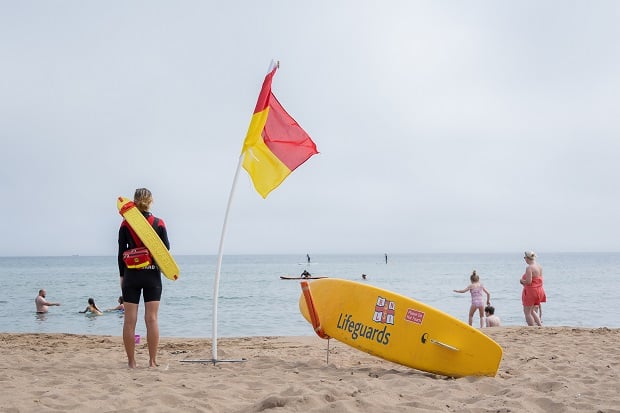
Recruitment for lifeguard teams has started regionally in preparation for keeping beachgoers safe this summer. The charity’s lifeguards not only rescue those in difficulty in the water, they also provide vital beach first-aid and safety advice to ensure visitors can return home safely.
In 2021, the RNLI’s in Kent responded to 511 incidents, helping 703 people in need and saving four lives.
Last summer, lifeguards helped swimmers stricken by powerful rip currents, saved children being blown offshore in inflatables, came to the rescue of paddleboarders and gave critical first aid on beaches among the various incidents they attended.
Successful applicants will receive lifesaving training, enjoy good rates of pay, the possibility of flexible working patterns and develop valuable skills for their future career.
James Ring, RNLI Seasonal Lifeguard Supervisor in Kent, said: ‘Working as a beach lifeguard is a rewarding job that helps you develop many transferable skills for any career path. In addition, it helps you build confidence and leadership and improves your ability to work as part of a team, which often brings life-long friendships.
‘There is so much opportunity for progression in the role, and you make a huge difference in your community by preventing potentially life-threatening situations. We are looking for people willing to learn and put their training into action to make the right decision if someone’s life is in danger.
‘Interviews will be held from the end of March onwards, and we will be training our lifeguards through the May half-term in preparation for the 2023 season. Our inductions include basic lifesaving skills, such as rescue board and tube training, and each lifeguard will undergo a three-day casualty care course, which prepares them when dealing with first aid interventions for the season ahead.
‘You don’t need to hold a valid qualification when applying for the role. We can help you gain the qualifications you need to become a lifeguard and point you in the right direction with how and where to obtain them. The lifeguards will be based on Thanet and Swale beaches and will be patrolling from 27 May to 3 September 2023.’
Find out more about becoming a lifeguard at rnli.org/BeALifeguard.
The RNLI is looking for individuals who hold a National Vocational Beach Lifeguard Qualification (NVBLQ), ILS Beach/Surf Lifeguard award or equivalent. If you do not hold one, there will be courses running in Portsmouth and other neighbouring areas through these links here and here.
The fitness requirements for lifeguards are to be able to:
complete a 400m pool swim in under 7½ minutes, the first 200m of which must be completed in under 3½ minutes.
complete a 25m pool swim underwater and a 25m surface swim consecutively in under 50 seconds.
complete a 200m beach run in under 40 seconds.

